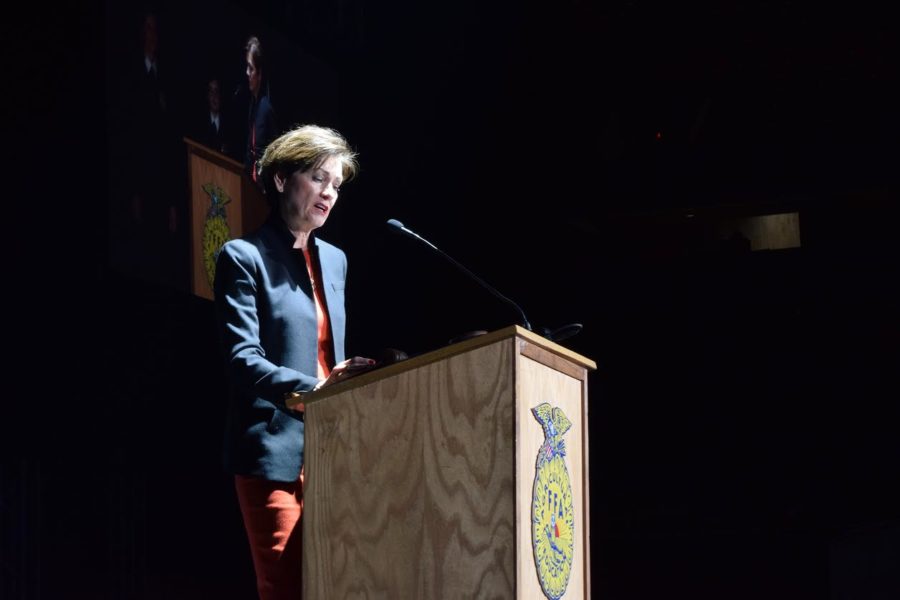- App Content
- App Content / News
- News
- News / Politics And Administration
- News / Politics And Administration / Campus
Reynolds addresses FFA convention in Ames
kim reynolds ffa
April 11, 2017
Lt. Gov. Kim Reynolds visited Ames Monday to address the state’s Future Farmers of America conference at Hilton Coliseum, telling the students the skills they learn now will someday benefit the entire state.
Speaking to a crowd of over 5,000 blue-coated FFA members through a cloud of haze made earlier by a smoke machine, Reynolds said the skills developed during their membership will make them leaders in their career paths. She said those skills will make them attractive to employers in the state or help them succeed in running their own operations.
“When ag is vibrant, it lifts all sectors of our economy,” Reynolds said in addressing the 89th Iowa FFA Leadership Conference.
Reynolds also said the group will lead the way in preparing Iowa students for STEM (Science, Technology, Engineering and Math) classes and careers in the future as the agriculture sector grows intertwined with technology. She said as farmers increasingly adopt technological advances in their fields, early opportunities for students to learn how they work in schools, internships and individual projects are essential for their competitiveness in the workforce.
“These classroom opportunities we have through STEM education give you the chance to apply what you’re learning to real-world projects,” she said.
The Legislature and Gov. Terry Branstad approved cutting about $21 million from the state’s Regent universities and community colleges in the next budget as part of an effort to fix a $118 million revenue shortfall.
When asked after her presentation about Iowa’s STEM preparation efforts in the midst of the cuts, Reynolds said the tough budget year required cuts to higher education and other state departments. She said the state will continue to invest $5.2 billion in STEM preparedness and to work with the private sector to give students access to practical experience. She also expects the recently-passed collective bargaining bill, which restricts public employees from collectively bargaining over health coverage and other benefits, will provide higher education institutions some cost savings.
“Once we get through 2018, hopefully we’ll continue to look for ways that we can invest in education,” she said.







